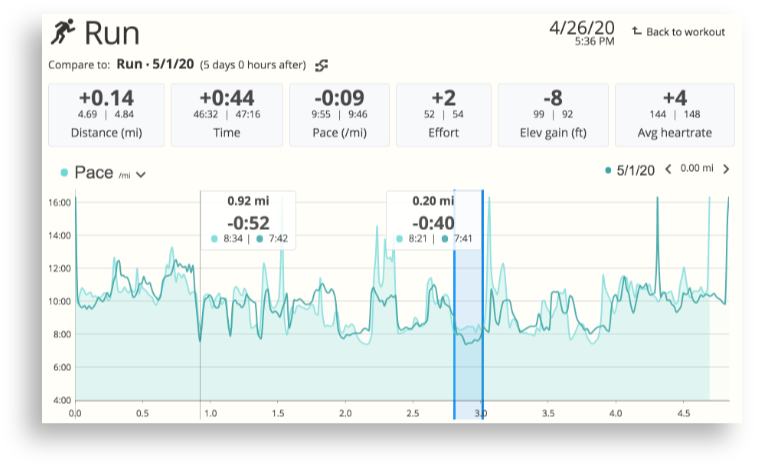Building Mental Toughness
Actionable steps you can take to improve your mental game
Endurance athletes are in an unusual bind these days. With no real-life races happening for six months or longer, it's difficult to determine how to best utilize your available training time — whether you're stuck in lockdown or able to get outdoors. No matter what the circumstances may be, there's one vital skill you can focus on developing: mental toughness.
The importance of the mental game is often expressed by elite athletes. Getting to the front and hanging with the lead pack at a big race is overwhelmingly demanding, no matter how primed and fit you may be. The athleticism required to win is often present in many of the competitors, but it's the racer with the strongest mental toughness who usually dominates.
But this isn't just a tool for the best in the sport, it's something that can be used by people at all levels of experience. It's just as effective for the athletes aiming for first place as it is for everyone behind them. And just like intentionally targeting specific zones and intensities, you can deliberately train and sharpen your mental skills. Here's how...

Recognize training opportunities
Unless you've decided to peak for an upcoming virtual race, you've likely dialed back your distance and intensity from where you would normally be this time of year. But even though your overall workload has been scaled back, that doesn't mean it's devoid of intensity. A challenge is a challenge, no matter where you are in a training cycle. The first step is to recognize moments when you're struggling, and to see them as more than just phases of discomfort, but of opportunities to do mental training. If you're in lockdown take note: these moments of difficulty don't need to occur during workouts, they can be from any aspect of life.
Better utilize your inner voice
Your mind can oscillate from a zen-state of emptiness during a workout to jumping through a range of topics (form, posture, breath, pace, route, duration, etc.). It's what you think about during times of trouble that matters most for mental toughness training. When faced with adversity, you need to intentionally cheer yourself on with statements of positive self-affirmation. Simple mantras like "I am strong enough to crush this interval!" can make a powerful impact on your performance. Come up with your own optimistic statements, find ones you like, and intentionally repeat them in times of need. If you're the type of person that wouldn't normally do this because it seems silly, remember the reason why you're doing it: to achieve goals and reach new heights. Big dreams will benefit from an open mind.
Focus on small accomplishments
It can be fun to explore new routes when you get outside to work out, but don't forget the benefits of repeating the same courses, especially when you're being challenged. For example, when you do hard intervals on the same route, you can set a goal for each repetition and press yourself to hit it in the moment, boosting yourself up with positive self talk as you go. Glancing at your workout tracker after each interval provides cursory information about whether you achieved each goal, but you can take this analysis much further afterwards.

The Compare Workouts feature in SportTracks automatically finds matching workouts
It can be very helpful to use the Notes feature in SportTracks to jot down how the workout felt, and if any qualitative factors played a role in the outcome. There are little details that are easy to forget, even though they played a major role. It can also be greatly beneficial to use the automated Compare Workouts feature to see how you performed in relation to past efforts. It lets you view similar workouts with a great deal of granularity to better determine if your mental training is paying off. If you're falling short, there may be information in the notes that explain why, further easing the mental burden.
Visualization isn't just for basketball
Even if your goal races are currently postponed, the challenges presented by their courses are alive and well. Heartbreak Hill waits for you patiently in Newton, Massachusetts. The Alpe d’Huez doesn’t have any plans to relocate. You may not be at these storied locations now, but there are mental benefits to to be gained if you visualize yourself achieving greatness at them. If you're stuck on a stationary bike, treadmill, or you only have bodyweight exercises at your disposal, your mind is still free to wander, and the more you visualize yourself excelling at your dream races, the better.
Mental toughness training is useful during our current global pandemic, but it's something you can continue working on and developing going forward. When a scheduled workout falls on a day when the weather is terrible, braving the elements will test and strengthen your mental skills. Taking on non-sports related challenges in your personal and professional life will improve your mental game as well. Your subconscious is a muscle you can flex, so give it the attention it deserves every week.
| Article written by Sam Mallery, Director of Marketing, Zone Five Software Inc. |
